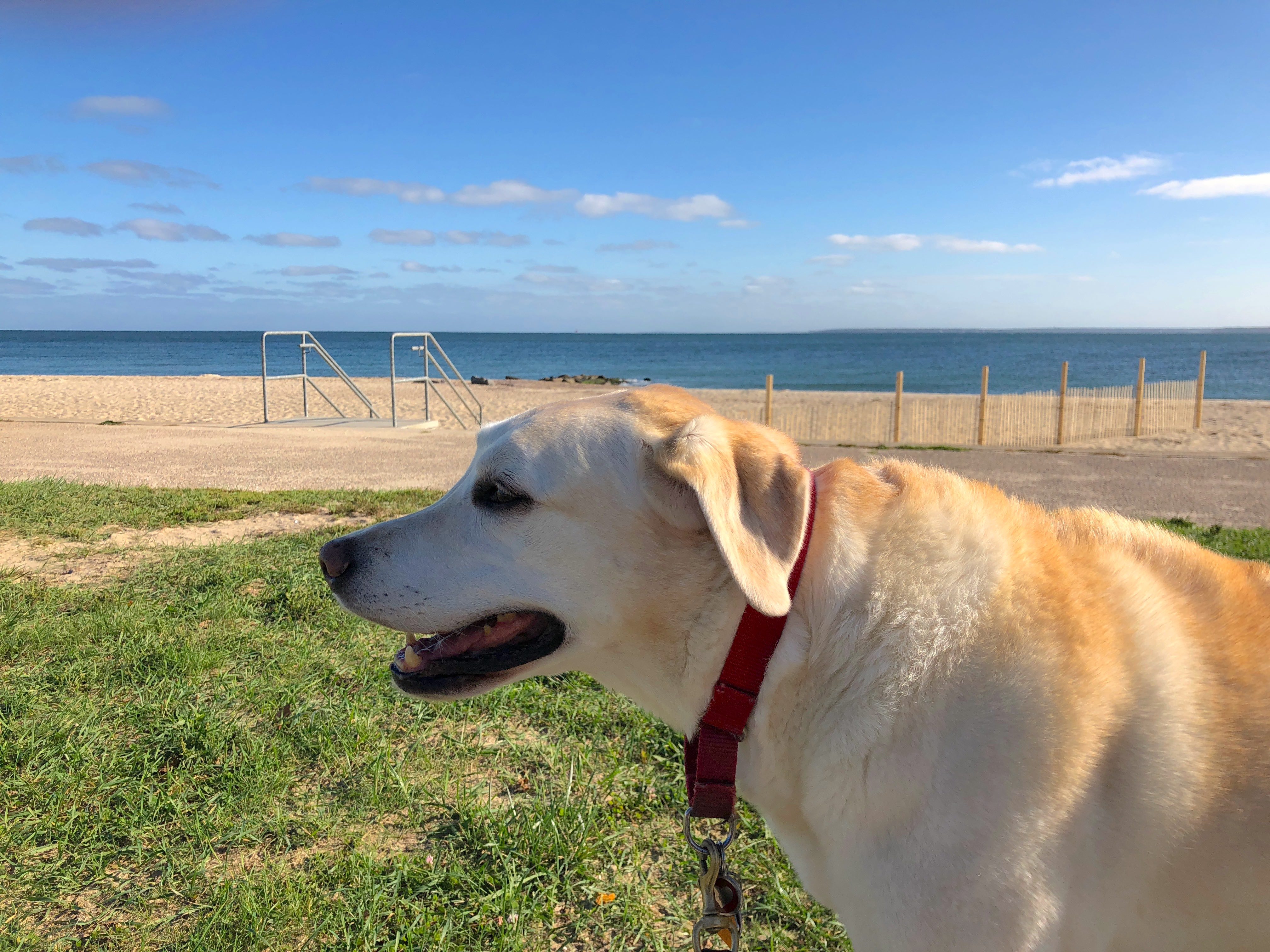Great news! Hannah's biopsy results came back and they point strongly toward irritable bowel disease and not stomach cancer! This was a huge relief and these results will help guide her gastrointestinal therapy from this point forward. Dietary management is one of the best ways to keep the symptoms of IBD under control, so I changed her diet from the Royal Canin GI Low Fat she had been eating previously to the Royal Canin Hydrolyzed Protein (HP). The HP diet is simply a chicken based diet that has undergone a hydrolyzation process to make the chicken proteins unrecognizable by Hannah's immune system. This makes it the perfect diet for managing IBD, because her body is able to digest this food without reacting to the chicken proteins and starting the inflammatory process that had previously been causing her GI distress. Since the change to this diet, I've seen even more improvement in Hannah's energy levels and GI health. The vomiting that we'd been seeing previously has stopped, and within 24 hours of starting the new food she was already feeling and acting like her old self again. At some point, Hannah may need additional medication to help manage her IBD, but at this point, the dietary management alone is working great.
As I mentioned in a previous post, prior to Hill's recall of many of their canned foods for excess vitamin D, Hannah had previously been eating Hill's prescription i/d, which is Hill's version of a prescription strength gastrointestinal diet. While this food is not responsible for her IBD, I still cannot rule it out as a cause of her lethargy and periodic vomiting, which started about a month before Hill's recall of many of their canned foods. I have a long history with Hill's, including serving as the director of marketing for all of their veterinary product lines, and I was even involved in the development and launch of many of the prescription diets they sell today. I've recommended their products all these years because my experience with the company was that they did things the right way, but their recent recall and the way the company handled getting information about the recall out to vets like myself has shaken my faith in their line of prescription diets. Since the recall, I've spent countless hours researching the Royal Canin line of disease management diets and feel they are an excellent alternative to the Hill's prescription diet line. I have personally visited their research and development facilities, as well as their manufacturing facilities, and they are exemplary. Their dedication to providing the highest quality food from both a production and a nutritional standpoint are unmatched, in my opinion, and Hannah's experience with their foods has proven this even more.
As a result of my latest research and my lack of complete confidence in Hill's line of prescription diets, we will begin advising our clients who are currently feeding the Hill's prescription diets to consider transitioning to the Royal Canin veterinary diets. I can be reached directly via email at drhawk@commonwealthvet.com if you have any questions about my decision to switch CVH's nutritional recommendations, and am happy to give customized nutritional recommendations to make the switch easy for owners and pets alike. Once we've determined which of Royal Canin's diets is appropriate for your pet, I'll provide you with information about how much to feed and how to carry out the switch, as well as a coupon for a free bag or case of food to get you started at no cost. To make a recommendation, I just need to know what diet you are currently feeding your pet, how much you're feeding (including any treats or extra toppers you give your pet), and if your pet is overweight or underweight.
I would have never guessed that excess vitamin D in Hannah's food could have caused such problems for her, and I'm happy to have made the switch to a food that I know will not contribute to her illness in any way. Although Hannah's condition remains the same, her diet change and the information her endoscopic biopsies provided have gone a long way toward making a long term therapy plan that keeps her feeling energetic and happy despite the fact that she's an aging yellow lab with sore joints, IBD, and cancer. Her quality of life is excellent at this time, and I thank everyone for their well wishes. Hannah would be thrilled to know that so many human and animal friends are rooting her on!
Until next time,
Dr. Hawk

